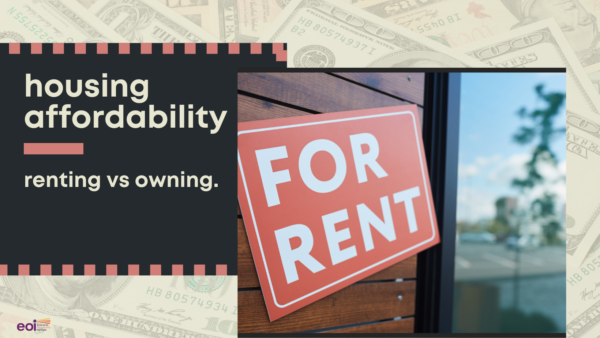 Everyone knows that Washington is expensive. But what does housing affordability mean for renters and owners in Washington?
Everyone knows that Washington is expensive. But what does housing affordability mean for renters and owners in Washington?
As of 2021, nearly 927,000 Washington households (31.6% of all households) were considered cost-burdened. That means they were spending more than 30% of household income on housing. While roughly similar numbers of owner-occupied (~440,000) and renter-occupied (~487,000) households were housing cost-burdened, on the whole, the numbers show us that renters were far more likely to be housing cost-burdened than owners.
The result: 46% of all renter-occupied households, and 24% of all owner-occupied households, were cost-burdened by housing.
Housing Affordability: Renting vs. Owning
However, one stark number shows the critical difference between renting and owning. Since 2010, the number of cost-burdened owner-occupied households has declined by 115,000 while the number of cost-burdened renter-occupied households has increased by 66,000.

Housing affordability doesn’t impact everyone equally, though. Among Washington’s five most populous counties, King, Snohomish, and Clark have seen the greatest percentage increase in the number of cost-burdened renter-occupied households, and the largest percentage decline in the number of cost-burdened owner-occupied households.
Unsurprisingly (because they tend to drive the statewide trend), each of the state’s largest counties has similar numbers of owner-occupied vs. renter-occupied households that are housing cost-burdened. However, because there are far fewer rental-occupied households overall, a higher percentage of renters are housing cost-burdened than owners.
And while the number of cost-burdened owner-occupied households has declined, the number of cost-burdened renter-occupied households has increased since 2010. This indicates a need for more focus on housing affordability for renters. This is especially important considering the challenges facing Washington residents who are hoping to own a home.

More To Read
August 10, 2021
New State Programs May Ease a Short-Term Evictions Crisis, but Steep Rent Hikes Spell Trouble
State and local lawmakers must fashion new policies to reshape our housing market
November 20, 2020
We Can Invest in Us
Progressive Revenue to Advance Racial Equity
